Helicopter carrier HMS Ocean has sailed from Plymouth on a 6.5-month deployment as part of the inaugural Joint Expeditionary Force Task Group.
According to the Royal Navy, the flagship will form part of the task group commanded by Commodore Andrew Burns, deploying to the Mediterranean and Middle East before returning home in March next year.
Captain Rob Pedre, Captain of HMS Ocean, said:
“It is a great privilege to be in command of the Fleet Flagship and to deploy with my ship’s company and embarked force on operations today.
I am in command of a truly joint defence asset with Royal Navy, Royal Marines, Army and RAF personnel on board and we will work together to deliver success for the Joint Expeditionary Force.
This deployment is the culmination of a year of hard work for the ship and HMS Ocean’s ship’s company have worked tirelessly to get us to sea today; I am very proud of their efforts.
There are a mix of emotions throughout the ship; excitement at deploying to do what we joined the Royal Navy to do – go away on operations; nervousness because for some of my sailors and Royal Marines this is the first time they will have been away from home for any length of time – and sadness at leaving loved ones at home.
I have no doubt that HMS Ocean is ready to take on the challenges of the deployment, delivering operational success over the next six and a half months.”
Commodore Burns said:
“This deployment is a hugely important task for the Royal Navy, and for Defence, demonstrating our ability to deploy and operate worldwide, engaging closely with our allies and standing ready for whatever a deployment to an area of strategic interest to the UK can present.
I know that all of the units under my command are ready to make the most of the opportunities and challenges that lie ahead.”
HMS Ocean will take over from a US aircraft carrier towards the end of the year, taking charge of coalition naval operations against Islamic State.
The 21,000 tonne vessel is an amphibious assault ship and landing platform helicopter. She is designed to support amphibious landing operations and to support the staff of Commander UK Amphibious Force and Commander UK Landing Force.
It is understood she has been chosen due to her command and control capabilities, rather than aviation capabilities as the role will largely be co-ordination of operations and the fleet itself.
Last year, French aircraft carrier FS Charles de Gaulle took command of US Naval Forces Central Command’s Task Force 50.
The commander of the Task Force will be leading coalition naval strike operations for Operation Inherent Resolve, the purpose of which is “to fight and ultimately destroy” Islamic State.
HMS Ocean will take command of CTF 50, which plans and conducts strike operations in the US 5th Fleet area of operations, at the end of the year.
She will also provide a range of flexible and adaptable capabilities to perform theater security cooperation efforts and maritime security operations aimed at increasing the Royal Navy’s interoperability with allies in the region.
HMS Ocean will also be leading the Joint Expeditionary Force, a British task force which will consist of forces from Denmark, Estonia, Latvia, Lithuania, the Netherlands and Norway.
The helicopter carrier is to lead the force to the Mediterranean in the Autumn before heading East to take command of CTF 50, the deployment is to replace the previous COUGAR deployments.
The UK will be deploying the Royal Navy, Royal Marines, British Army and Royal Air Force.
The aim of the JEF is to create a UK military framework, focused around its existing and upcoming British high readiness capabilities, that its partners can join up with. While it is the UK’s intention to fully integrate the UK’s JEF partners’ contributions before 2018, the JEF could deploy immediately if required. It is designed with the following requirements in mind:
“a. act jointly and with allies, but able to act alone”
“b. be well equipped, but not tied to platforms”
“c. adapt as the environment changes”
Speaking before the Royal United Services Institute, Sir David Richards outlined the specific applications that the capabilities of the Joint Expeditionary Force will allow:
“With the capability to ‘punch’ hard and not be a logistical or tactical drag on a coalition, we will be especially welcomed by our friends and feared by our enemies. JEF will be capable of projecting power with global effect and influence.
Nowhere is more important to us than our friends in the Middle East and Gulf and in line with clear political intent we would expect, with other initiatives, for JEF elements to spend more time reassuring and deterring in that region.”
The UK’s contribution will include the lead commando, airborne, armoured, aviation, air and maritime task groups.
The Defence Secretary said:
“I am very pleased that we have signed a letter of intent with our partners to establish the Joint Expeditionary Force.
This will be developed around the UK’s existing high readiness units and will provide a capability that can respond anywhere in the world, in any environment, as part of a coalition, or on behalf of international organisations such as the UN and NATO.
We are stronger together. Our partners from Denmark, Estonia, Latvia, Lithuania, the Netherlands and Norway have all agreed to attach forces to the JEF when the time is right for us to stand together.”
The force will be a pool of high-readiness forces that can respond quickly to a range of issues, using combat power, conventional deterrence or humanitarian assistance. Such assistance could include setting up responses similar to that deployed to tackle the Ebola outbreak in West Africa.


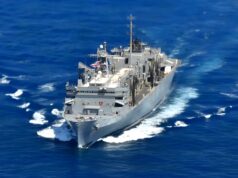
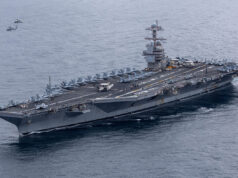
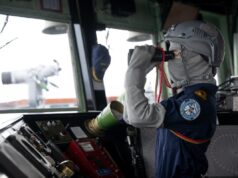
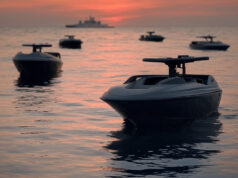
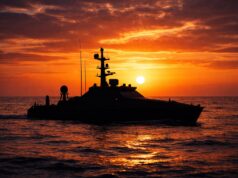
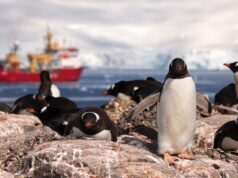
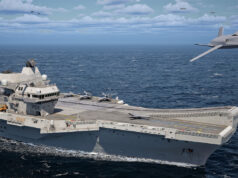

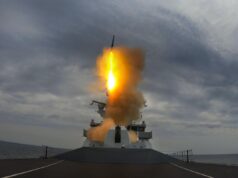
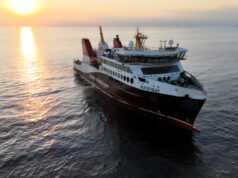

Good to see we are making good use of Ocean before she is replaced by the vastly more capable Queen Elizabeth class.
Also worth noting that Ocean is performing this important and very prominent international role with only helicopters embarked. Of course it will be a great day when Queen Elizabeth does complete flight testing with F35B and can sail with an embarked fixed-wing air group but it’s not as if, until that happens, she’s going to be this useless white elephant that some people claim. She’s going to be a great asset for deployments like this even before fixed wing is ready to fly from her decks.